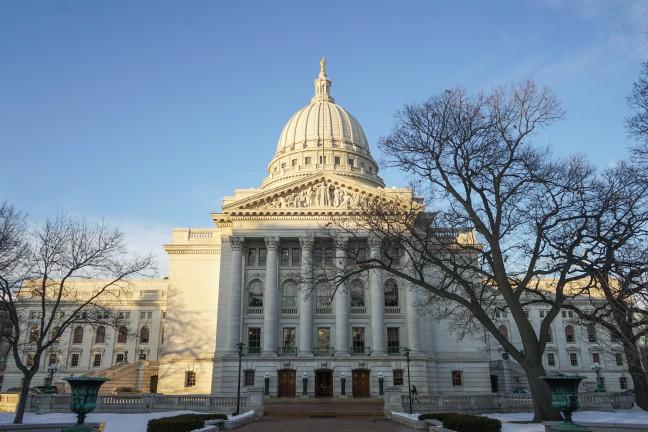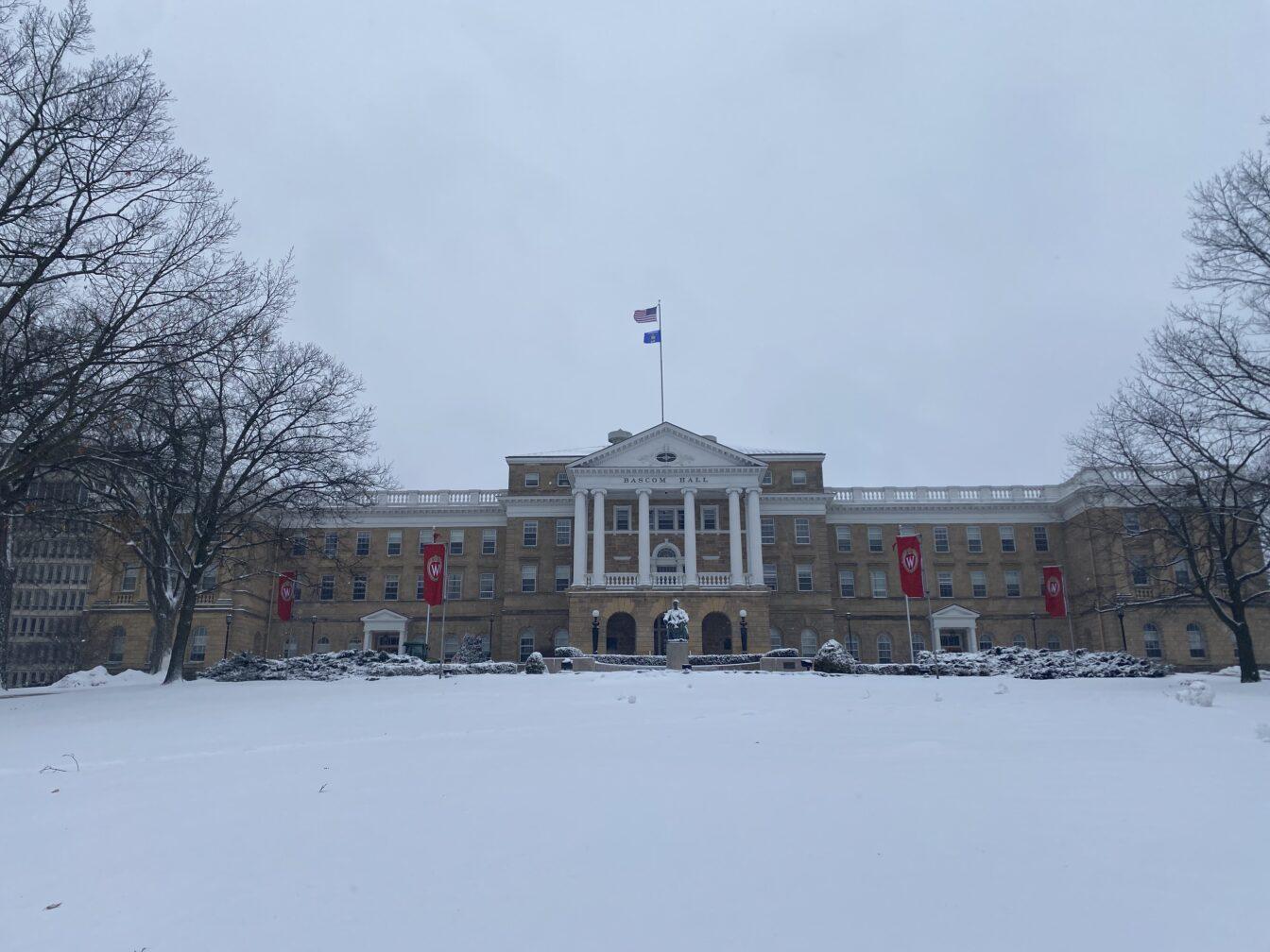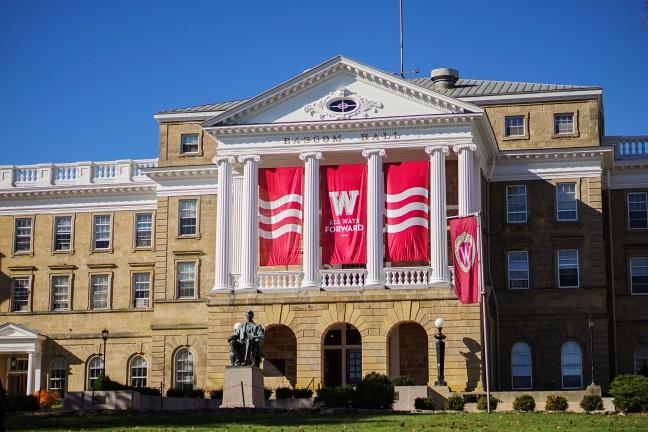The current state Capitol has stood in the center of Madison for more than 100 years now. Throughout that century, it’s seen Wisconsinites grapple with adversity and celebrate success as they attempt to carve a popularly responsive and reflective government.
The building’s imposition on Madison’s skyline is symbolic of the power housed within it — the power given to governors and state legislators and bureaucracies by voters. But as Wisconsinites have too often seen in the past few years, power given can quickly become power abused.
Now, Wisconsin Republicans, fresh off losing the governorship to Democrat Tony Evers, are trying to change the game so as to negate that loss. Among the proposals currently being debated in the state Capitol today are increased limits on early voting, changes to the timing of elections and slashes to the power of the offices of governor and attorney general — all moves which would serve to benefit Republicans in this political moment.
The situation is further frustrated by the methods employed and by the wider historical context which brought us to this particularly troubling act of Wisconsin political theater.
Election 2018: Amid expectations of a ‘Blue Wave,’ Wisconsin selects a Democratic ticket
For starters, Republican state legislators called for an extraordinary session to debate and vote on the proposals shortly after they lost the governorship and the office of attorney general in November.
Assembly Speaker Robin Vos, R-Rochester, claims he spoke about such proposals with incumbent Gov. Scott Walker, November’s biggest loser, before the results of the election and planned to introduce them regardless of the outcome. The extraordinary sessions’ legislative package is a necessary move to limit executive power, Vos claims.
.@SpeakerVos says he talked with Walker last spring about some of these proposals to talk about the separation of powers, not knowing who would win the election
— Emily Hamer (@ehamer7) December 3, 2018
Such statements are interesting, for lack of a better word, considering Republicans in the state Legislature fed many of the same powers to Walker which they are now trying to strip from Evers. If limiting executive power is such a high priority for Vos and his colleagues, one has to wonder why they consistently gave the outgoing executive so much of it throughout the past eight years.
But their actions as of late are not the most frustrating or even the most consequential aspect of this situation — for the debate over slashing executive power and the calling of this extraordinary session are but a piece within the larger debate over gerrymandering and the unrepresentative state Legislature.
When Democrats receive 190,000 more votes statewide, but Republicans somehow take 63 out of the 99 Assembly seats, the right of this legislature to even call the extraordinary session, let alone slash executive power and change electoral procedures, must be questioned.
In other Wisconsin news today, the state posted the official 2018 Assembly election results. It’s a beautiful gerrymander. Dems got 190,000 more votes but Reps got 63/99 seats. Key is assuring many GOP districts get just over 50% of vote even in a bad year for the party. pic.twitter.com/WEOvpr4EUD
— Barry Burden (@bcburden) December 4, 2018
University of Wisconsin political science professor Barry Burden called the 2018 election results a “beautiful gerrymander” — and indeed they were. Now, the representatives imposed on us by that manipulated election are trying to negate a different election’s results, and are trying ensure that future elections swing in their favor.
The implications of their actions are far-reaching and destructive. Any suggestion otherwise fails to take a comprehensive look at what it means to maintain a healthy and functioning democratic process.
Considering that Wisconsin Republicans already have and are now looking to intensify their corrosion of the two essential components of any democracy — namely, stable rules and unstable outcomes — it is not incendiary to suggest that the legitimacy of Wisconsin’s democracy is at stake here.
When Republicans in North Carolina took a similar course following the election of a Democratic gubernatorial candidate, the Electoral Integrity Project no longer classified the state as a democracy. It is not naive to suggest that Wisconsin is following in its footsteps.
Rare lame-duck session strips Wisconsin’s democracy of legitimacy, cheats voters
Considering the state Legislature’s Republican majority, it is likely that these measures will pass. That’s disheartening, but it is also unsurprising. When the will of the people is willingly and repeatedly subverted at the feet of those seeking to advance their own power, one has to question the vitality of the democracy they’re living under.
So, where to go from here? Sure, electing people who will respect difficult election results, who have a history of advancing electoral fairness, and who seek to make voting easier is an integral part of any solution to this existential problem.
But when the government is unresponsive and unbothered by opposition leveled against it within the parameters of state institutions, it appears that the time calls for popular action — for a break from institutionalized opposition, from the confines of voting and elections, from a government which refuses to listen.
History suggests that the most successful movements for change operated outside state institutions. It also suggests that even in the face of the most unfair of circumstances, at times when all considerable power appeared to be stacked against a particular group, that same group has been able to rise up and receive the change they demanded.
Memories of popular resistance in Wisconsin inevitably bring us back to Madison and to the state Capitol. It was only six years ago that protesters in support of unionized labor organized a mass movement in that building. And while they didn’t win all the change they sought, it’s undeniable that their voices led to a heightened awareness of and conversation about those issues.
As the year draws to a close, then, we must reexamine Wisconsin’s history as a bastion of progressive politics. The state government today appears bent on erasing that history and creating a future of conservative government for a populace which repeatedly rejects it.
But the future is a collaborative effort. The making of it will be a joint venture, one in which everyone’s voice will play some role.
This state’s history suggests that united voices are powerful voices, and that they have the capacity to effect great change. So, while the state’s future is uncertain and undeniably concerning, Wisconsinites can draw inspiration from that history and strive to more closely align future governments with the interests of their citizens.
That is the task of our democracy. To deny that would be to deny our own interests.
The Editorial Board serves to represent the voice of The Badger Herald editorial department, distinct from the newsroom, and does not necessarily reflect the views of each staff member.













